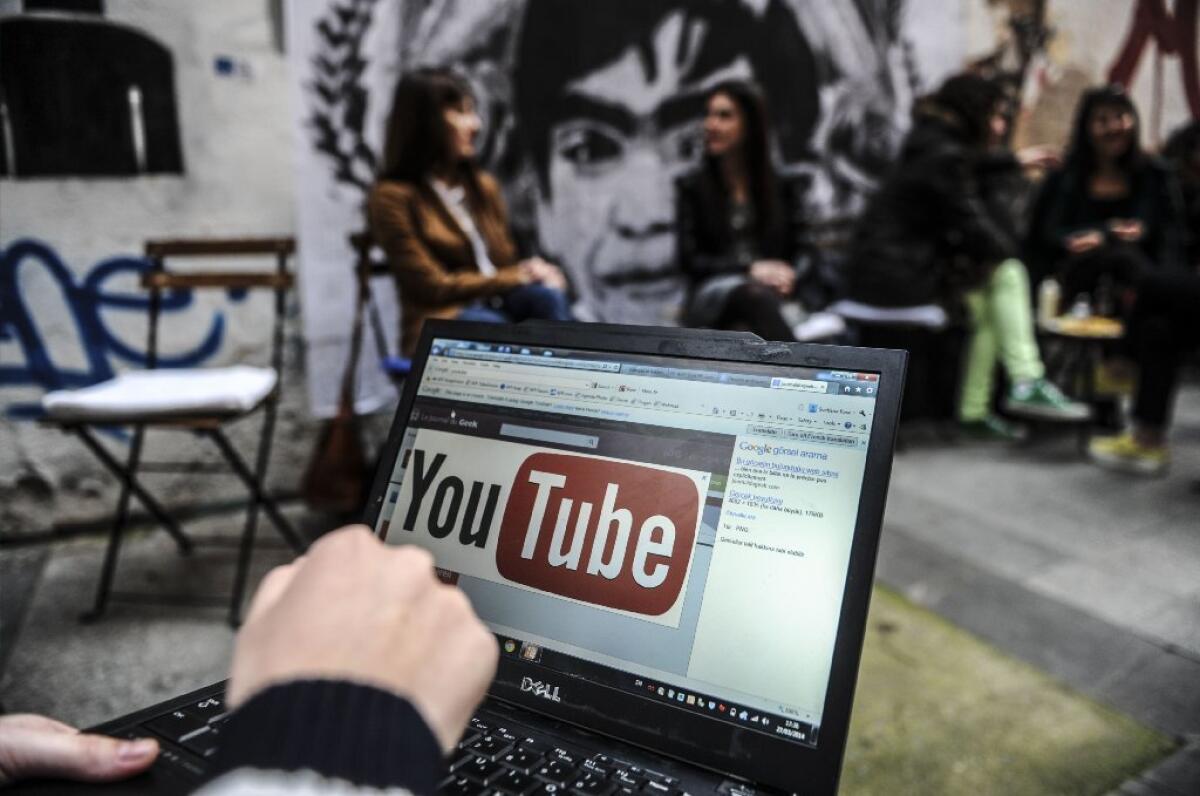Editorial: A message to YouTube: Don’t be evil

Google’s YouTube is such a rich repository of material from so many sources — global news broadcasts and TV shows, short films, live performances and amateur recordings — that it has become the Internet’s unofficial video archive. That’s why the company’s threat to remove videos uploaded by independent record companies because of a dispute over a forthcoming YouTube service is so alarming. YouTube is no longer an upstart in a crowded market; it’s a dominant player whose decisions have enormous consequences for its users. And the threat it has leveled against indie labels suggests that the company has lost touch with that reality.
YouTube ranks as one of the world’s most popular online destinations for music. The site has countless official and unofficial music videos, covers, clips from concerts and karaoke performances of the work of practically every artist to use a microphone. Over time, the vast majority of the industry has teamed up with YouTube to try to turn fans’ interest into cash by adding advertisements to their uploads. The main shortcoming is that the ads yield a microscopic amount of revenue per video played.
To generate higher per-song royalties, the music industry has long urged YouTube to launch a service such as the ones Spotify, Rhapsody and Rdio offer, charging users a monthly fee to play an unlimited amount of music. The company is now preparing to do just that, and says that 95% of its label partners have signed on to the new service, including all three major record companies. Among the holdouts, though, are some smaller labels and notable artists. And in order not to have the current free service compete with the new subscription-based one, YouTube has told these labels and artists that it will take down their music videos and no longer provide a home for advertiser-supported uploads. That means if fans upload videos using these labels’ recordings, the labels will be able to ask YouTube only to remove them, not monetize them.
The holdouts have complained to regulators on both sides of the Atlantic that the terms YouTube is offering are skewed in favor of the big labels. That’s an issue they’ll have to resolve in private negotiations. But YouTube shouldn’t be able to use its dominant position in advertiser-supported video to coerce labels into supporting a new product, even if it would understandably prefer not have that new product compete with its current offering. Similarly, Amazon’s apparent bullying of Hachette Book Group raises hackles because the e-commerce king seems to be using its huge share of the printed book market to force the publisher to accept its terms for e-books. The lesson the tech world should have learned from the Justice Department’s pursuit of Microsoft in the 1990s and 2000s is that a different set of rules applies to companies once they start wielding enormous power in a market. Those rules now apply to YouTube, whether the company likes it or not.
More to Read
A cure for the common opinion
Get thought-provoking perspectives with our weekly newsletter.
You may occasionally receive promotional content from the Los Angeles Times.










